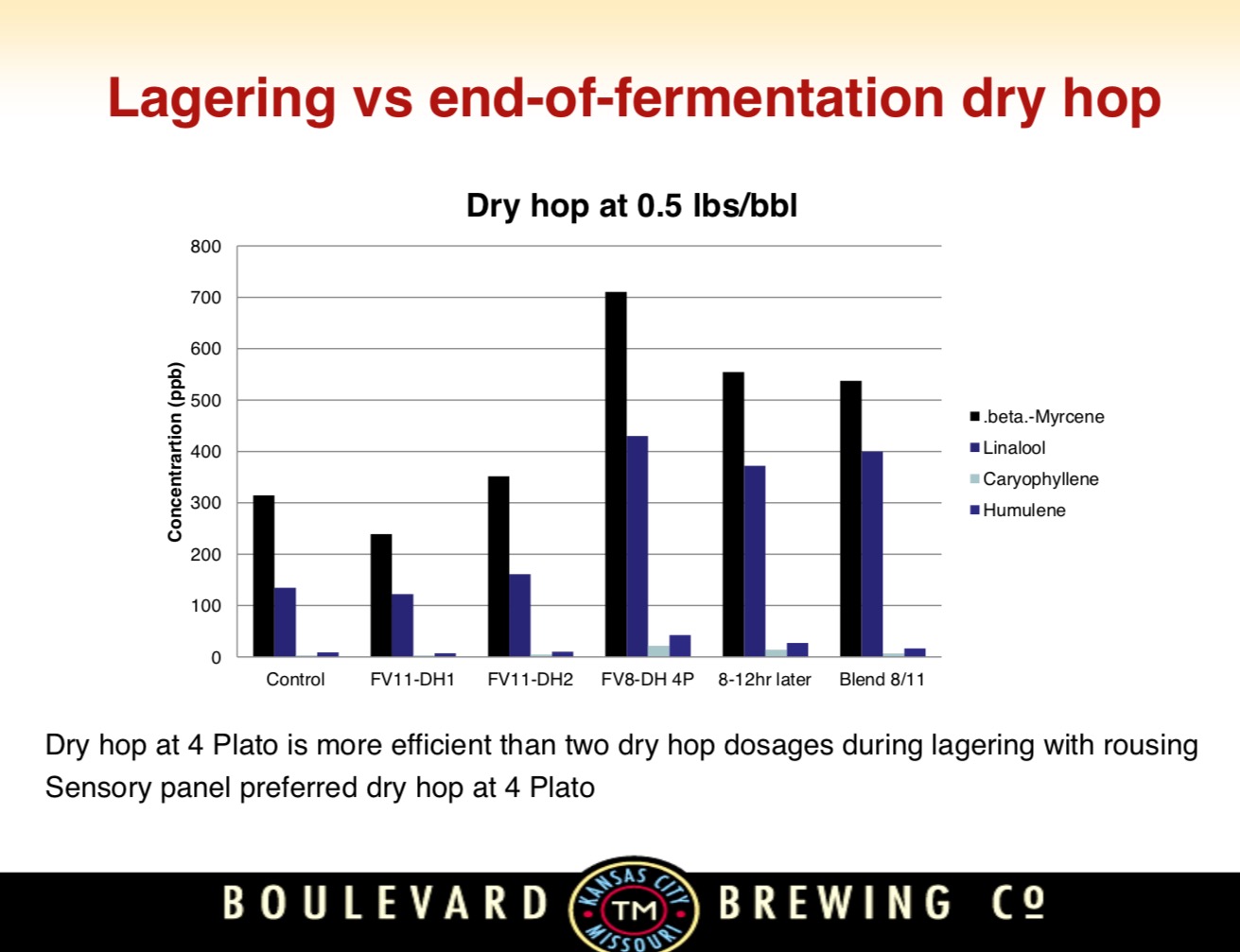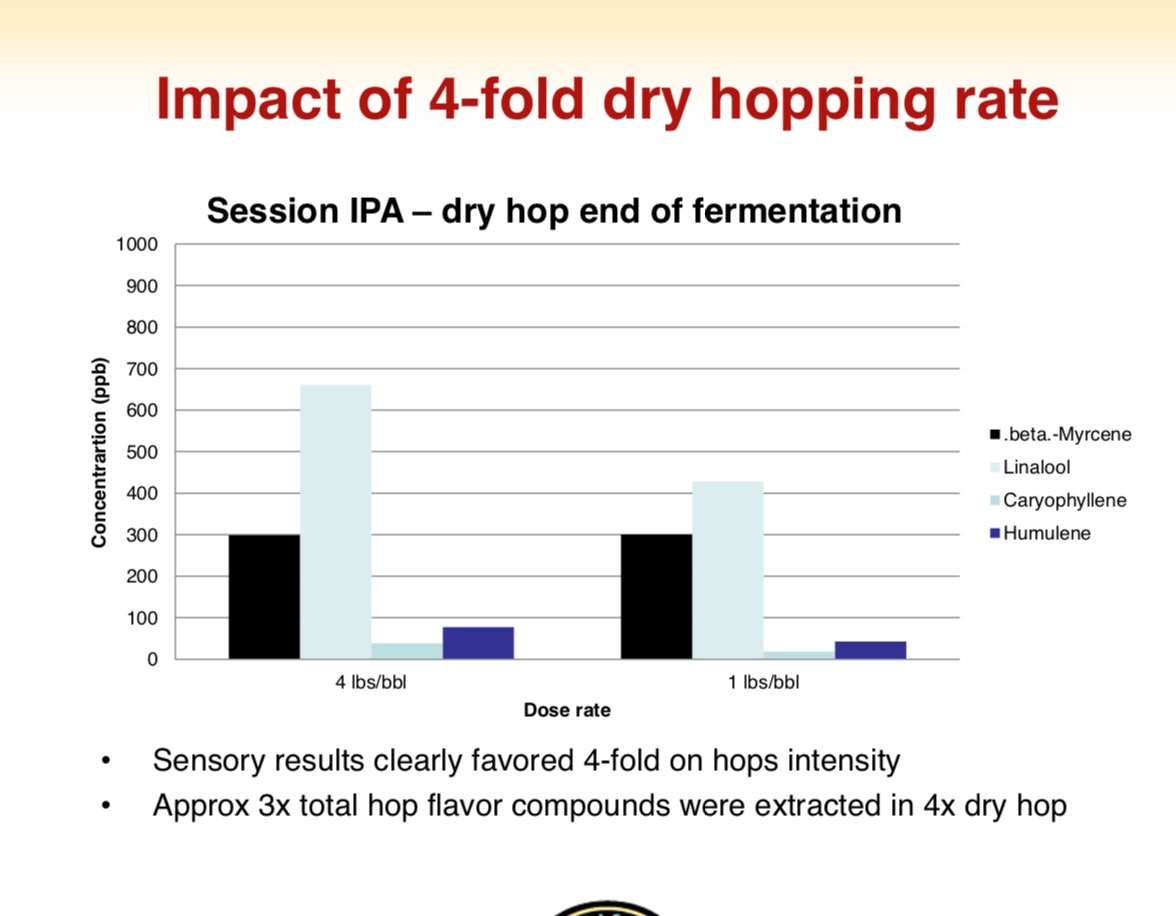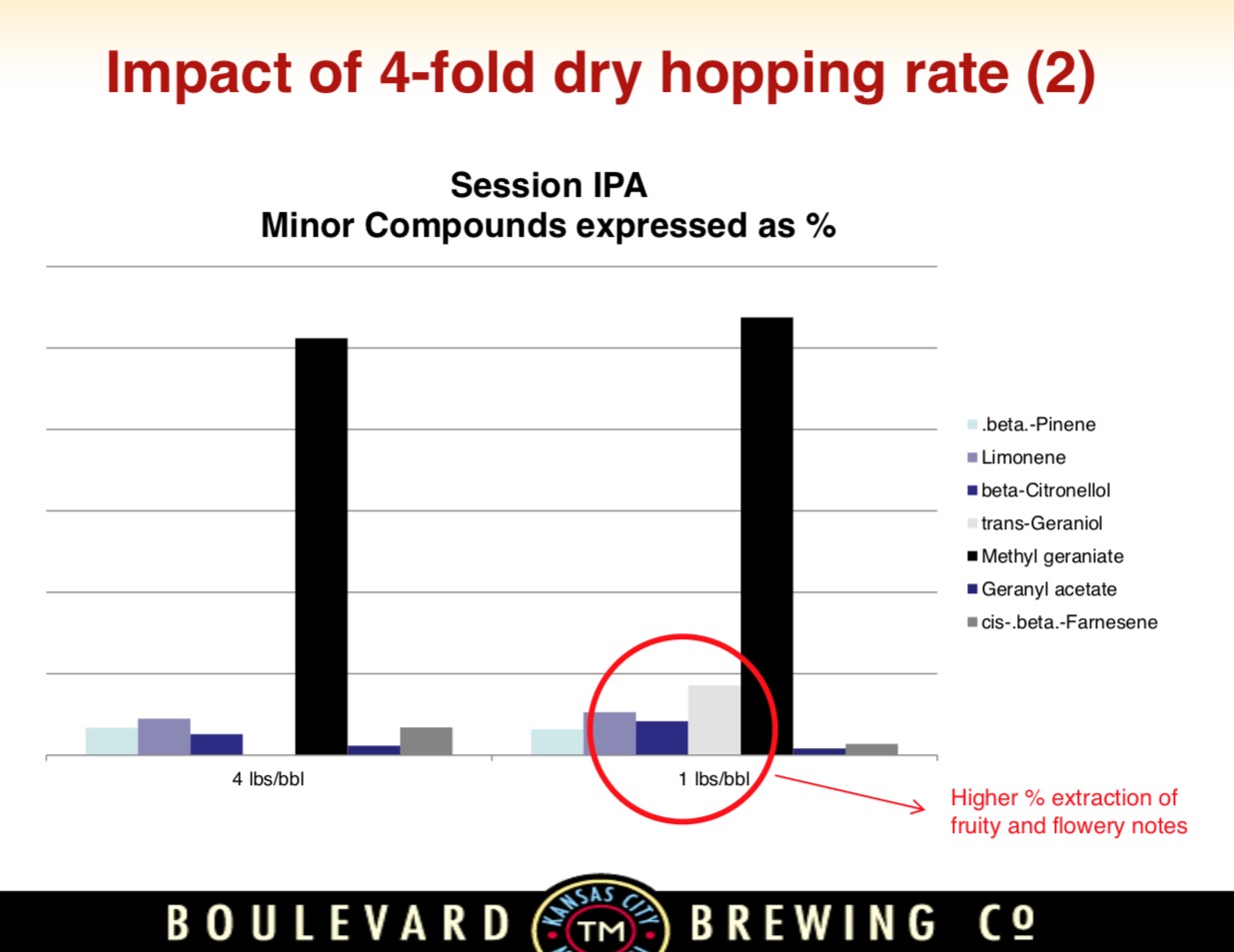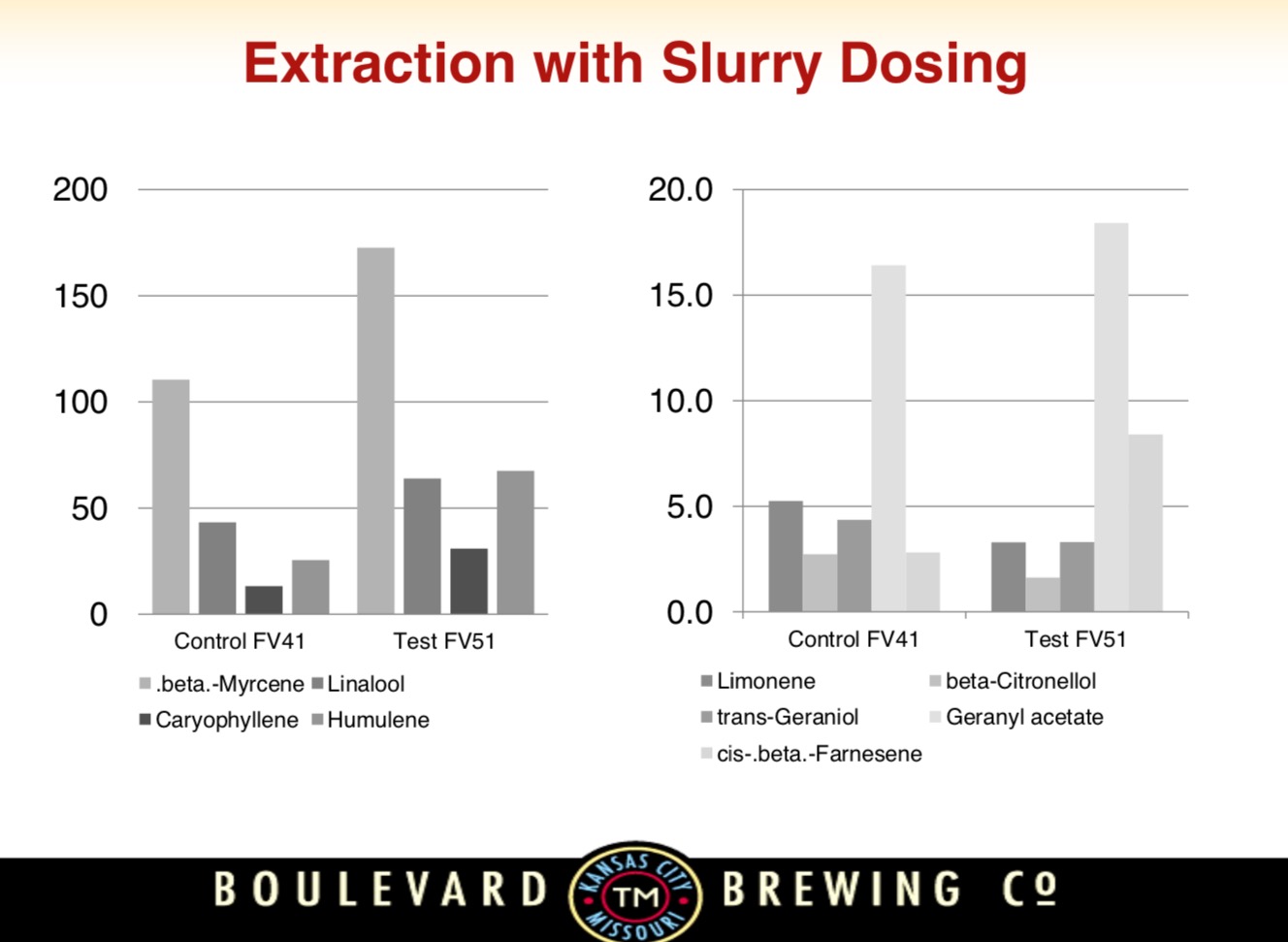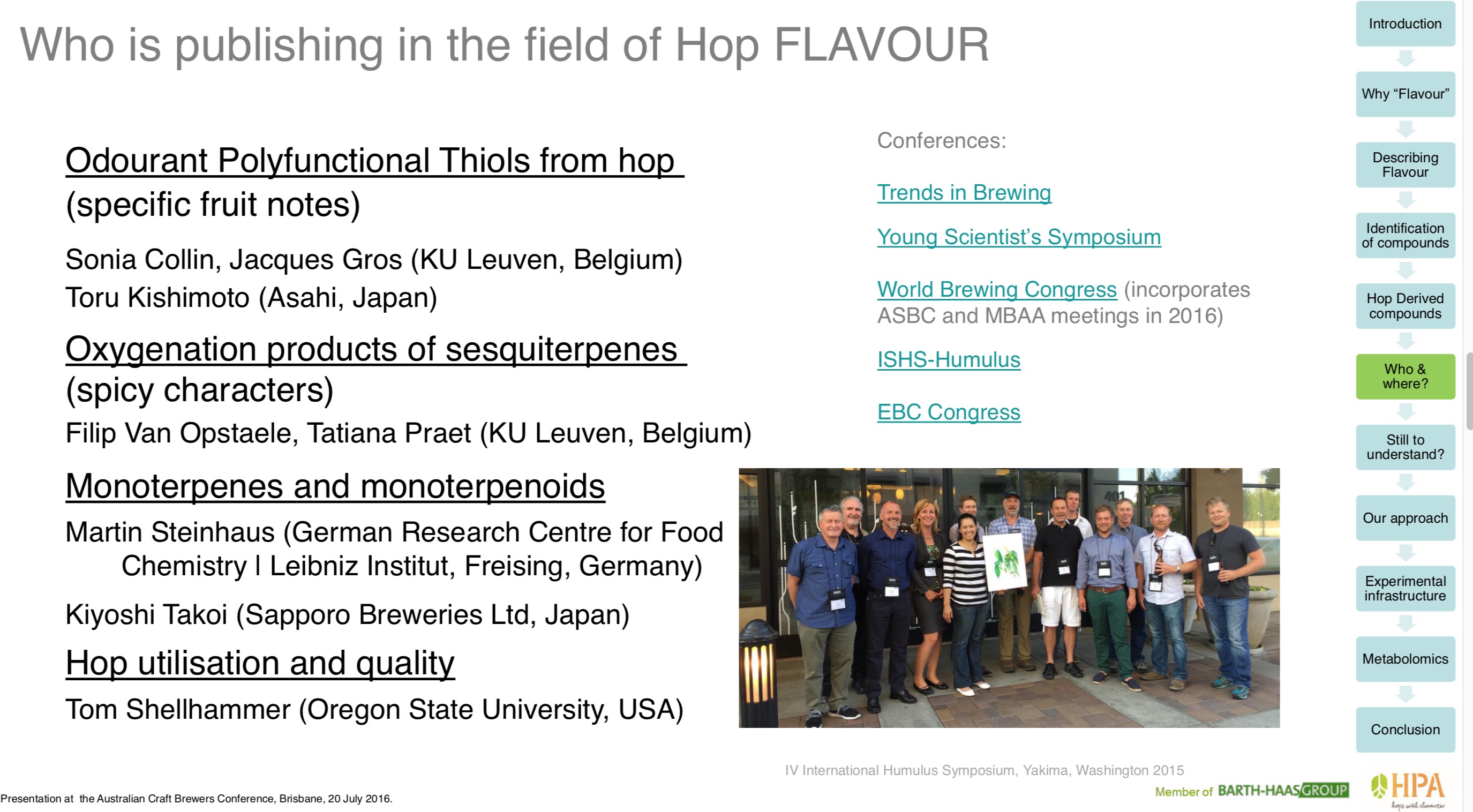VirginiaHops1
Well-Known Member
I listened to Episode 75 of craft beer and brewing featuring Odd13 Brewing. Recommend a listen if you haven't already: https://beerandbrewing.com/podcast-episode-75-odd13/
Some interesting stuff to unpack. One, he describes bio transformation having a "more rounded" hop flabor vs traditional having a more direct flavor expression of the individual hops. Since I've brewed this style, I always thought the secret was in the biotransformation. Going to try traditional dry hop. I know this has been discussed here.
Another thing is with most of their beers they drop yeast before they dry hop at terminal FG. Have any of you tried dry hopping off yeast and seen a significant difference? I think I'm going to try it. It should be relatively easy with my keg fermenters to keep all oxygen out while transferring it off the yeast. There will be a hit to efficiency, but if it's worth it, it's worth it.
I'm pretty sure this has been discussed in this thread but yeah several people have touted crashing out the yeast and then dry hopping. I previously never cold crashed because of O2 concerns but I started keg fermenting about 5-6 batches ago and have done it that way most of my keg batches and my flavor/aroma seems to pop a lot more than before. I'm actually crashing a batch right now that I'll transfer tonight into a purged keg already loaded with dry hops.

















![Craft A Brew - Safale S-04 Dry Yeast - Fermentis - English Ale Dry Yeast - For English and American Ales and Hard Apple Ciders - Ingredients for Home Brewing - Beer Making Supplies - [1 Pack]](https://m.media-amazon.com/images/I/41fVGNh6JfL._SL500_.jpg)








































